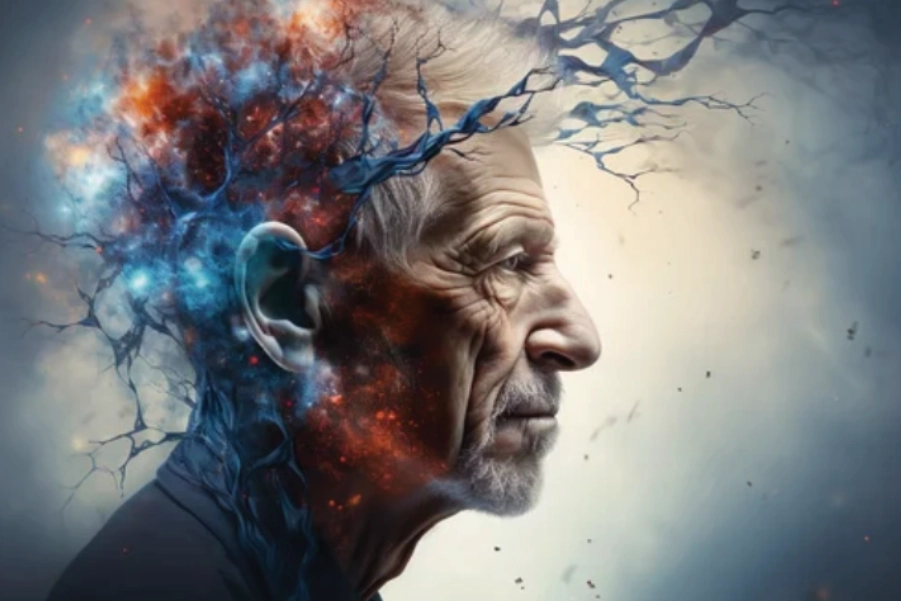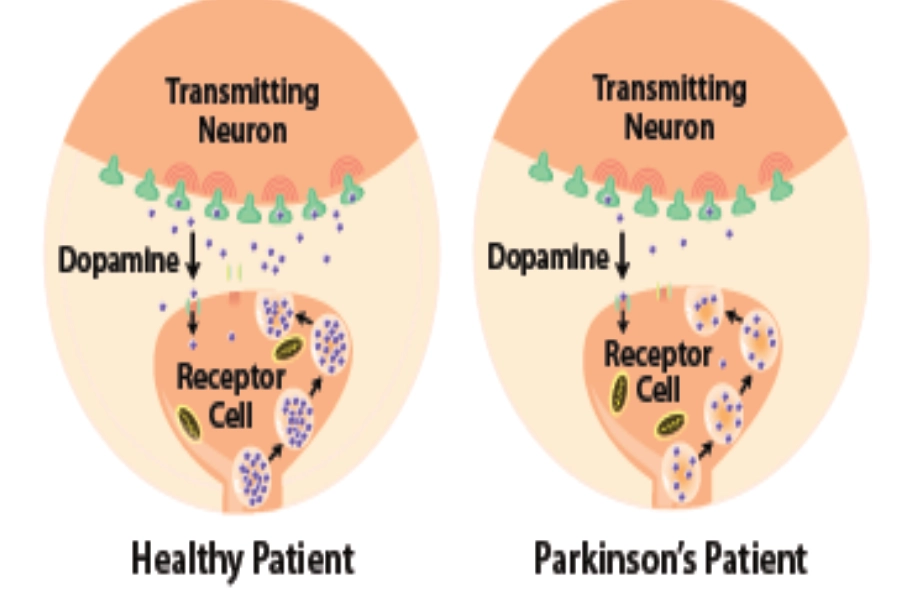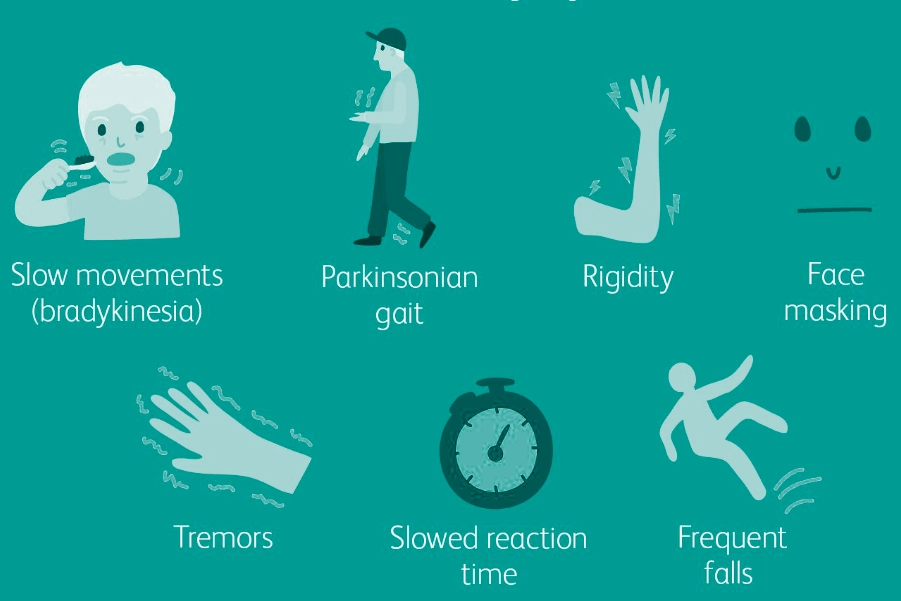Best Physiotherapy for Parkinson's disease You Can Trust
Trust “Best Physiotherapy for Parkinson’s disease” for tailored rehabilitation, integrating evidence-based techniques to maximize recovery and restore independence. Our compassionate care and dedicated support aim to guide people affected by Parkinson’s disease towards improved mobility and quality of life.
Best Parkinson's disease physiotherapy Doctors in Delhi, India's

Physiotherapy for Parkinson's disease
Parkinson's disease Physiotherapy in Delhi
Physiotherapy for Parkinson’s disease encompasses a comprehensive approach, including exercises targeting mobility, balance, and gait, as well as strategies to address specific motor symptoms such as rigidity and bradykinesia. Therapists utilize techniques such as cueing, rhythmic auditory stimulation, and proprioceptive training to improve movement coordination and quality. Additionally, education on safe mobility techniques and home exercise programs empowers individuals with Parkinson’s to manage their condition effectively and optimize functional independence and quality of life.
What is Parkinson's disease
Parkinson's disease is a progressive neurological disorder characterized by the degeneration of dopamine-producing neurons in the brain. This results in a range of motor symptoms, including tremors, rigidity, bradykinesia (slowness of movement), and postural instability. Non-motor symptoms such as cognitive impairment, depression, and sleep disturbances may also occur. Parkinson's disease primarily affects movement control, leading to difficulties with daily activities and reduced quality of life. While the exact cause is unknown, both genetic and environmental factors are thought to contribute. Treatment focuses on managing symptoms through medications, lifestyle modifications, and various therapies to improve function and alleviate symptoms.
Parkinson’s disease is caused by the gradual degeneration of dopamine-producing neurons in the brain’s substantia nigra region. While the exact cause remains unclear, a combination of genetic and environmental factors likely contributes to its onset. Genetic mutations, exposure to certain toxins, and oxidative stress are among the potential triggers. These factors lead to the formation of Lewy bodies, abnormal protein clumps found in the brains of individuals with Parkinson’s. The loss of dopamine-producing neurons disrupts the brain’s communication pathways, resulting in the characteristic motor symptoms associated with Parkinson’s disease, such as tremors, rigidity, and bradykinesia.
Causes of Parkinson's disease
Parkinson’s disease is caused by the gradual degeneration of dopamine-producing neurons in the brain’s substantia nigra region. While the exact cause remains unclear, a combination of genetic and environmental factors likely contributes to its onset. Genetic mutations, exposure to certain toxins, and oxidative stress are among the potential triggers. These factors lead to the formation of Lewy bodies, abnormal protein clumps found in the brains of individuals with Parkinson’s. The loss of dopamine-producing neurons disrupts the brain’s communication pathways, resulting in the characteristic motor symptoms associated with Parkinson’s disease, such as tremors, rigidity, and bradykinesia.

Symptoms of Parkinson's disease

Parkinson's disease presents with a variety of symptoms that can vary in severity and progression. Common motor symptoms include:
- Tremors (typically starting in one hand)
- Bradykinesia (slowness of movement)
- Rigidity (stiffness in limbs and trunk)
- Postural instability (difficulty with balance and coordination)
- Cognitive impairment
- Mood changes (e.g., depression or anxiety)
- Sleep disturbances
- Constipation
- Loss of sense of smell
- Freezing of gait
- Speech and swallowing difficulties
- Autonomic dysfunction (e.g., urinary urgency or orthostatic hypotension)
Symptoms may worsen over time, impacting daily activities and quality of life.
Treatment of Parkinson disease
Treatment for Parkinson's disease focuses on managing symptoms and improving quality of life. This may include medications to increase dopamine levels, deep brain stimulation surgery, physiotherapy, occupational therapy, speech therapy, and lifestyle modifications. Regular exercise, healthy diet, and support from healthcare professionals are also integral parts of Parkinson's management.
Physiotherapy Treatment for Parkinson disease
Physiotherapy for Parkinson’s disease includes exercises targeting mobility, balance, and flexibility, alongside gait training and cueing techniques to improve movement patterns and enhance independence in daily activities.
Recent developments in physiotherapy technology for Parkinson’s treatment include the integration of wearable sensors for objective movement assessment, virtual reality systems for balance and gait training, and robotic-assisted devices for repetitive task training. These technologies offer personalized and targeted interventions to improve motor function and enhance overall quality of life for individuals with Parkinson’s.
When to Start Physiotherapy After Parkinson disease
Physiotherapy should commence soon after Parkinson’s disease diagnosis to address symptoms and optimize functional independence. Early intervention aims to manage motor impairments, prevent complications, and enhance quality of life through tailored exercises and rehabilitation interventions.
Physiotherapy & Rehabilitation After Parkinson disease
Physiotherapy and rehabilitation after Parkinson's disease focus on managing symptoms, improving mobility, and enhancing quality of life. Tailored exercises, balance training, gait interventions, and education on safe movement techniques are key components to optimize functional independence and overall well-being.
Physiotherapy plays a crucial role in managing Parkinson’s disease (PD), focusing on improving mobility, balance, and overall quality of life. Rehabilitation aims to address motor symptoms such as tremors, stiffness, and bradykinesia, as well as non-motor symptoms like freezing of gait and postural instability.
ASSESSMENT AND GOAL SETTING:
The physiotherapist conducts a comprehensive assessment to identify specific impairments and functional limitations. Goals are then set collaboratively with the patient to tailor treatment plans accordingly.
EXERCISE THERAPY:
Exercise programs, including aerobic, strength, flexibility, and balance training, are central to PD rehabilitation. These exercises help improve muscle strength, flexibility, and coordination, reducing motor symptoms and enhancing mobility.
GAIT TRAINING:
Gait disturbances are common in PD. Physiotherapy focuses on improving gait patterns through exercises targeting stride length, step cadence, and weight shifting, along with cueing techniques and visual or auditory feedback.
BALANCE AND POSTURAL TRAINING:
Balance exercises, proprioceptive training, and postural strategies are employed to minimize postural instability and reduce the risk of falls. Tai chi, yoga, and dance therapy can also be beneficial.
FUNCTIONAL MOBILITY TRAINING:
Activities of daily living (ADL) training helps individuals maintain independence and perform daily tasks more efficiently. Techniques such as task-specific training and environmental modifications are incorporated.
CUEING STRATEGIES:
External cues such as auditory, visual, or tactile cues are used to facilitate movement initiation and execution, particularly in overcoming freezing episodes during gait.
EDUCATION AND SELF-MANAGEMENT:
Patients and caregivers receive education on disease progression, energy conservation techniques, home exercise programs, and fall prevention strategies to promote self-management and optimize outcomes.
TECHNOLOGY-ASSISTED REHABILITATION:
Advancements in technology offer innovative tools such as virtual reality, wearable sensors, and gaming systems for engaging and effective rehabilitation interventions.
By addressing motor impairments, enhancing functional abilities, and promoting overall well-being, physiotherapy and rehabilitation play a vital role in optimizing outcomes and enhancing the quality of life for individuals living with Parkinson’s disease.
Our Treatment Process
Committed To Keep People Healthy & Safe
Our treatment process begins with a thorough assessment, followed by the creation of a personalized plan tailored to your needs. Through active rehabilitation, incorporating various evidence-based techniques, we work to promote healing and improve function. Continuous support and guidance are provided to ensure long-term success.
We start by having a thorough conversation with you about your medical history and any issues you’re experiencing. This helps us understand your unique situation.
We use state-of-the-art software and technology to analyze how your body moves and functions. This gives us a detailed picture of what might be causing your discomfort.
Based on what we find during the assessment, we create a personalized plan just for you. Our goal is to help you achieve specific outcomes, whether it’s reducing pain, improving mobility, or something else.
During your sessions with us, we use a combination of advanced technology and hands-on techniques to address your needs. This might include using special equipment or providing manual therapy to target problem areas.
We keep a close eye on how you’re doing throughout your treatment. By regularly checking your progress, we can make sure you’re on the right track and make any necessary adjustments to your plan.
Once you’ve made significant progress and reached your goals, we’ll guide you through a final session. Here, we’ll provide you with a customized digital exercise program that you can continue at home.
Even after your sessions with us are complete, we’re still here to support you. We offer virtual and online follow-up appointments to check in, answer any questions you may have, and provide ongoing guidance as needed.
At Best Physiotherapy Centre in Delhi for Parkinson disease, We Follow Best Practices
Why Choose Us
We offer personalized care, crafting customized treatment plans based on your unique needs and goals. With expertise in physiotherapy and a holistic approach to healing, our team ensures comprehensive care that addresses both physical and emotional aspects of recovery.
- Personalized Care
- Experienced Professionals
- Expertise & Best Practices
- Holistic Approach
- Latest Technology
Meet Dr. Dharam Pandey and Team
Leaders in Advanced Neurological Rehabilitation
At Dr. Dharam Pandey and Team, we are dedicated to revolutionizing Neurological Rehabilitation through cutting-edge technology, personalized care, and a commitment to delivering exceptional outcomes. Led by Dr. Dharam Pandey, a renowned expert in neurorehabilitation, our team is equipped with state-of-the-art facilities and staffed by highly qualified professionals. We specialize in outcome-based functional task training therapy, harnessing the power of advanced technology to optimize recovery for patients.
State-of-the-Art Facilities
Our facilities are equipped with the latest technology and amenities to create a conducive environment for rehabilitation and healing. From spacious therapy gyms to private treatment rooms, we prioritize comfort, safety, and accessibility for our patients.
EXPERTISE
Led by Dr. Dharam Pandey, our team comprises highly skilled professionals with extensive experience in stroke rehabilitation.
PERSONALIZED CARE
We believe in a patient-centered approach, tailoring treatment plans to address the individual needs and goals of each patient.
ADVANCED TECHNOLOGY
We harness the power of advanced technology to deliver innovative rehabilitation solutions and optimize outcomes.
COMPASSIONATE SUPPORT
We provide compassionate, supportive care every step of the way, empowering patients to achieve their full potential.
Best Physiotherapy FOR Multiple Sclerosis
At Dr. Dharam Pandey and Team, we are committed to redefining the standard of care in neurological rehabilitation. With our expertise, state-of-the-art technology, and unwavering dedication to patient-centric care, we strive to inspire hope, restore function, and improve quality of life for head injury survivors. If you or a loved one is seeking specialized rehabilitation services, we invite you to experience the difference at Dr. Dharam Pandey and Team.
Call Today
+91-9818911195 +91-9818910029
Sector-6 Dwarka, Department Of Physiotherapy [Basement 1 Manipal Hospital, Delhi, 110075
Schedule a Appointment
Note: Content provided here is for informational purposes only and is not a substitute for professional medical advice or diagnosis. If you believe you are experiencing pain or any other health-related issue, it is important to seek the advice of qualified healthcare professionals for a proper evaluation and treatment plan.


